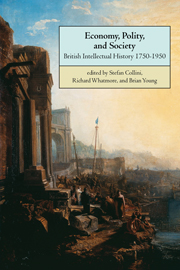General introduction
Published online by Cambridge University Press: 18 December 2009
Summary
It may be that there is no longer any need to justify the term ‘intellectual history’ or the practice for which it stands. If this is so – experience can, alas, still occasionally cause one to wonder – then it is a very recent development indeed, at least in Britain. Only two or three decades ago, the label routinely encountered more than its share of misunderstanding, some of it rather wilful, especially perhaps on the part of some political and social historians. There was, to begin with, the allegation that intellectual history was largely the history of things that never really mattered. The long dominance of the historical profession by political historians tended to breed a kind of philistinism, an unspoken belief that power and its exercise was what ‘mattered’ (a term which invited but rarely received any close scrutiny). The legacy of this prejudice is still discernible in the tendency in some quarters to require ideas to have ‘influenced’ the political elite before they can be deemed worthy of historical attention, as though there were some reason why the history of art or of science, of philosophy or of literature, were somehow of less interest and significance than the histories of policies and parliaments. In the course of the 1960s and 1970s, the mirror-image of this philistinism became even more common, particularly in the form of the claim that ideas of any degree of systematic expression or formal sophistication did not merit detailed historical scrutiny because they were, by definition, only held by a small educated minority.
- Type
- Chapter
- Information
- Economy, Polity, and SocietyBritish Intellectual History 1750–1950, pp. 1 - 21Publisher: Cambridge University PressPrint publication year: 2000
- 1
- Cited by



